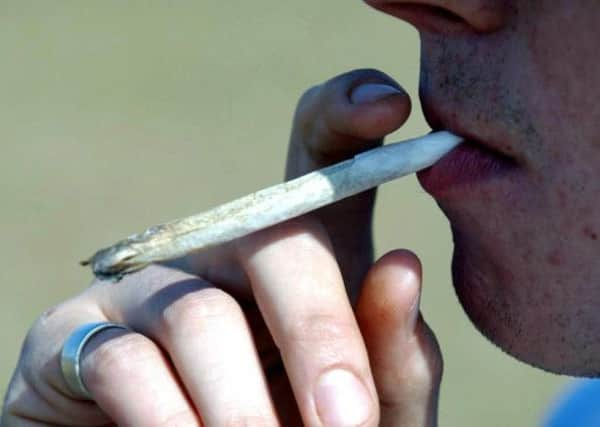Jayne Dowle: My nine-year-old asked if the men on our corner were doing a drug deal


MY son Jack and I were watching one of those police documentary programmes the other night. Jack’s keen on them, because being a pre-teen boy, “getting arrested” is a possibility which both terrifies and fascinates him. I find them uncomfortable viewing, because they usually throw up more questions than answers. In this particular instalment, the two officers found a haul of some kind of illegal substance in the back of a car. They looked at each other in puzzlement. They knew it was a drug, but neither of them knew what it was.
I could have told them. It was some form of amphetamine, commonly known as “whizz” or “speed”. I know because of late I’ve been familiarising myself with all forms of drugs. Not for personal consumption, you understand, but because at almost 13, Jack is reaching an age where he is curious. In fact, his friends have been rambling on about “weed” since the last year of primary school. Round here smoking marijuana is pretty much accepted as something which happens without too many eyebrows being raised. I reckon if you did a straw poll of Jack and his mates less than half of them would know that cannabis possession is actually illegal.
Advertisement
Hide AdAdvertisement
Hide AdIt is into this minefield that a parent must step. If two police officers can’t recognise a certain kind of fairly common drug, what hope have we? If we find a suspicious-looking substance under a teenage bed, how can we tell whether it’s a messy, dried-up old sweet or something much more worrying? If we are to avoid moral panic and a paranoia worse than any drug-induced comedown, it pays to take matters into our own hands and educate ourselves before we educate our young people.
It is no good whatsoever leaving it to the authorities to sort out. What hope have we when even the police seem confused? This is one responsibility we simply cannot abnegate. Schools will do their best to educate our children about the dangers of drug abuse, but how do we know our sons and daughters are listening? What are they saying to each other when they get outside the classroom? What false rumours and half-understood teenage hearsay propagates myths and possibly promotes false and dangerous information?
I don’t know about you, but as a parent that feels like a risk too big to take. I want to send a message to my children – should they be tempted to experiment – that they need to be aware of the facts. And more importantly, that they should never underestimate the serious and potentially ruinous repercussions of drug addiction. That said, sadly they only have to walk into the town centre to see the evidence for themselves; lost souls, pale faces, sunken eyes. Even my daughter, who is only nine, asks if the men on the corner on mountain bikes are doing a drug deal.
It is especially important to get our heads around all of this as the issue of legalising cannabis is gathering political momentum. The other week, more than 100,000 British people signed a petition urging the government to introduce a legal and regulated cannabis market. Several US states, including Colorado and Washington, have already legalised the drug. Meanwhile, Durham’s police commissioner, Ron Hogg, announced that the relationship between cannabis and criminalisation should be redefined. Can this be right? From a chief of police?
Advertisement
Hide AdAdvertisement
Hide AdWell, this is the world we live in so we might as well wake up and smell the smoke because it’s not going to go away. There is also an interesting argument building that cannabis legislation, for so long the provenance of the liberal-leaning left, could actually have a strong Conservative case. Decriminalise cannabis, the thinking goes, and you take away the power of those who run its supply as an illegal racket and all the violence and exhortation which goes along with it. You save a lot of police time. And you can also raise a lot of (legal) taxes.
Hmm. It’s a challenging one. But what if your child gets hooked on “weed” and it leads to a craving for stronger and more dangerous drugs? What if you lose them to a shady world of addiction? Talk to a parent whose child died of a Class A overdose and suddenly decriminalising cannabis looks like the start of a very slippery slope. If you’re lucky, you’ll bring up your children without ever having to worry about such matters. But if you bring them up in this world, it’s highly unlikely that you can get them safely to adulthood without have to talk about it.
If you’re concerned that you haven’t a clue, and feel daft asking questions, I can thoroughly recommend the government-backed advice website, www.talktofrank.com. It’s packed with useful advice, up-to-date figures, personal testimonies and the current street names for drugs. For parents, it’s an invaluable resource. For young people it is informative and non-judgemental. And it’s certainly worth a look for any wet-behind-the-ears police officer who wouldn’t know a bag of whizz if it dropped on his head.